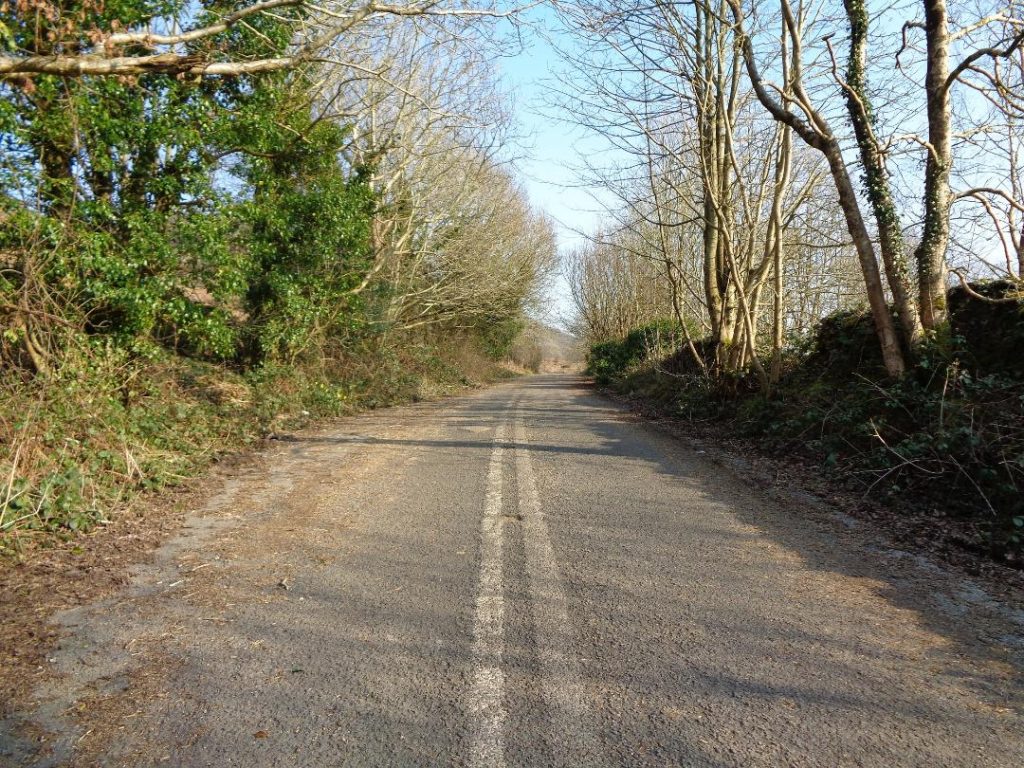
There is no doubt that climate change, and little doubt that the current pandemic, are clear examples of humanity reaping what it has sown. Some developments in history were necessary, some inevitable, some desirable, but for at least the last hundred years we have largely been pointlessly meddling – pandering to the false gods of economics and ‘progress’. People say you can’t turn back the clock. In fact, we have no choice but to turn back the clock – or it will be (and currently is) being turned back for us.
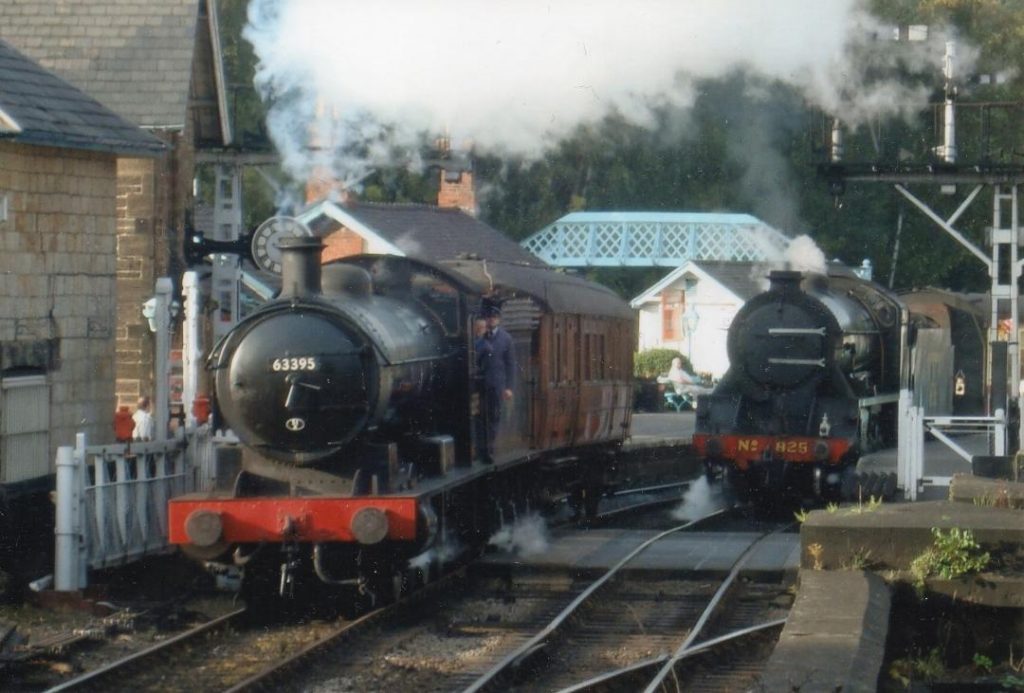
Observing social distancing, I cycled out yesterday to exchange books at the community book bank (a tub at the end of a drive where no one need meet) and pick up five kilos of potatoes left by arrangement, hanging on a gatepost. In the village an almost wartime spirit was palpable through homemade signs and people waving from gardens or windows – the key difference being that wartime morale endured through sociability. For all their ecological necessity, internet forums, online teaching and video conferences, will always be less satisfying than meeting people in three dimensions. Also, I never forget that mine is a rural, middle-of-nowhere, viewpoint – where so far things have been benevolent in the manner of the Archers[i] or Mrs Miniver[ii]. Our local anti-food-wastage scheme and other community activities have truly come into their own. I can’t say what it is like in towns and cities as I’m not supposed to go there. Reports however from family and friends, generally sound calmer than the predictable sensationalism of news reports[iii].

Taking the opportunity for some exercise, I looped out from the village to take a longer, wilder way back, meeting few people and no-one closer than three or four metres. Passing Low and High Tarn Green and later uphill through the hamlet of Thorphinsty, a few villagers, self-isolating in the freakish summer sun[iv], looked up from their books and called a friendly greeting, each in a bright garden dappled with shade, hidden away and unbeknown to the others. As in the village, for a time, these people, none of them looking much older than I, and none with visible children, may be fine, may enjoy a long holiday . . .
The lane climbed on through woods with a rusty light about them, to pass a faintly sinister pheasant enclosure: deer-fenced conifers containing their shade and darkness. Higher up, on a rocky fell road, all fences banished, the route turns to track and bridleway under glancing sunlight, across an area the map names as Poor House Allotments – but no buildings or allotments remain, only meandering stone walls, straggling woods and rough grass turning to moor.
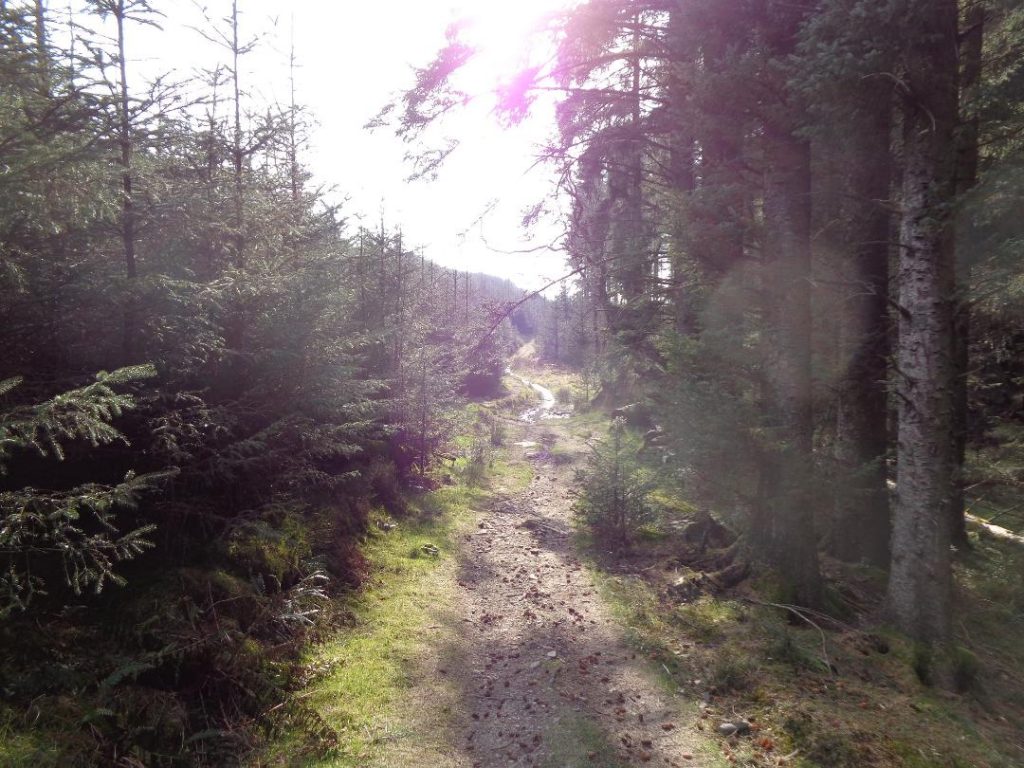
Bypassing the slightly revived settlement (less than a hamlet), of Simpson Ground, on the approach to Raven Scar, the pathway enters a plantation. Following the wider track was a mistake I was glad to make, as it brought me to a mysterious lake[v] concealed within the forest. Unfortunately, scanning the dark serrated edging and its ominous reflection, no trace of the Lady of the Lake could be discerned hovering amid the trunks. Yet in clear sight, the prow of a sunken boat projected above the waters. Had King Arthur failed to reach the proffered sword Excalibur, so hastening the fall of the realm of Logres?
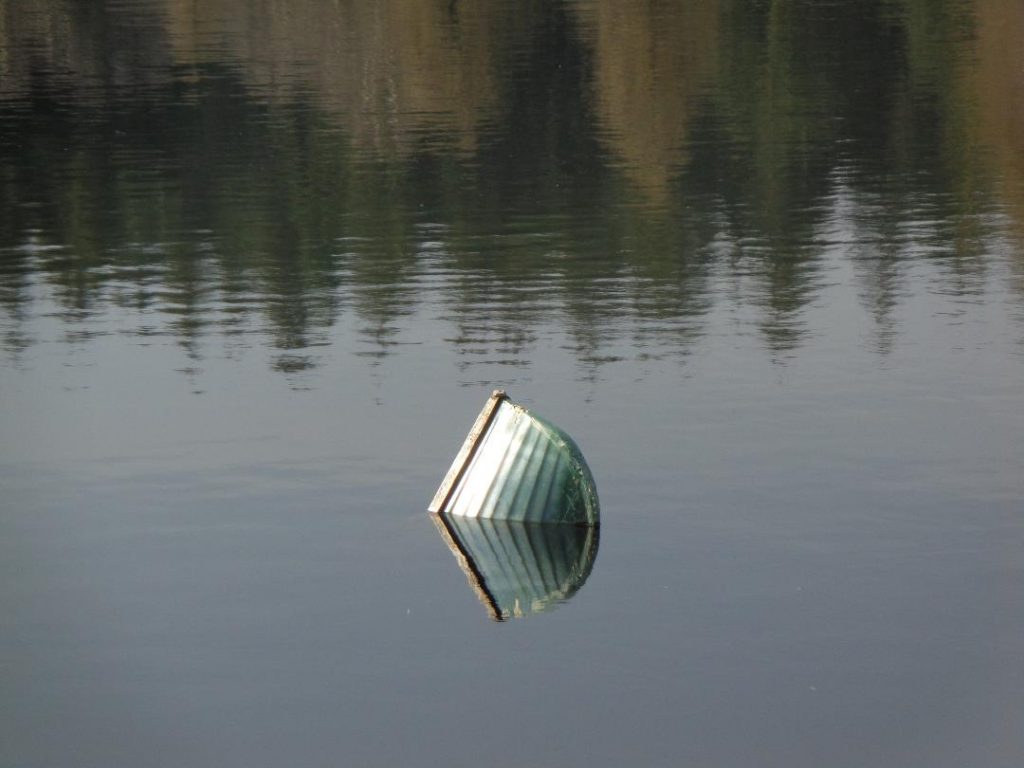
Resuming my correct course towards Chapel House Wood, I left the silence of Arthur’s failure behind. In normal weather at this time of year, this path would be a morass, but the optimistic sun had dried it all and the air had been emptied of jarring disturbance: no aeroplanes, no cars, no quadbikes or power tools broke the armistice of human destruction. Nothing but the occasional rustle of leaves and a pure symphony of birdsong. It might sound a bit hippy or new-age to say it, but the atmosphere was of immense peace and relief – as if the whole world were breathing a deep sigh of liberation. If the world could speak, it would have been telling us to slow down for centuries. Unfortunately, the realist in me knows that as soon as the current fear of infection is over, it will almost certainly be business as usual.
https://youtu.be/B-TkUAma8Y8
Over the years, I and all my children have watched the exceptional British Transport Film from 1959, Diesel Train Ride[vi] countless times. To some extent, with its poignant yet patronizing voiceover, this over-friendly but engaging colour film of carefully chosen landscapes and I-Spy[vii] information, is blatant propaganda for the new transport – a sweetener against all the cuts on the horizon. Yet if it has now become a period piece, it certainly exists on a stratospheric level, cramming more social idealism and earthly beauty into 10 minutes than almost any other film I can think of. Beginning in East Anglia and the Norfolk Broads, to end in what we once presumed was Scotland, but now clearly know as the English Lakes, the film[viii] has become a concise form of time travel.
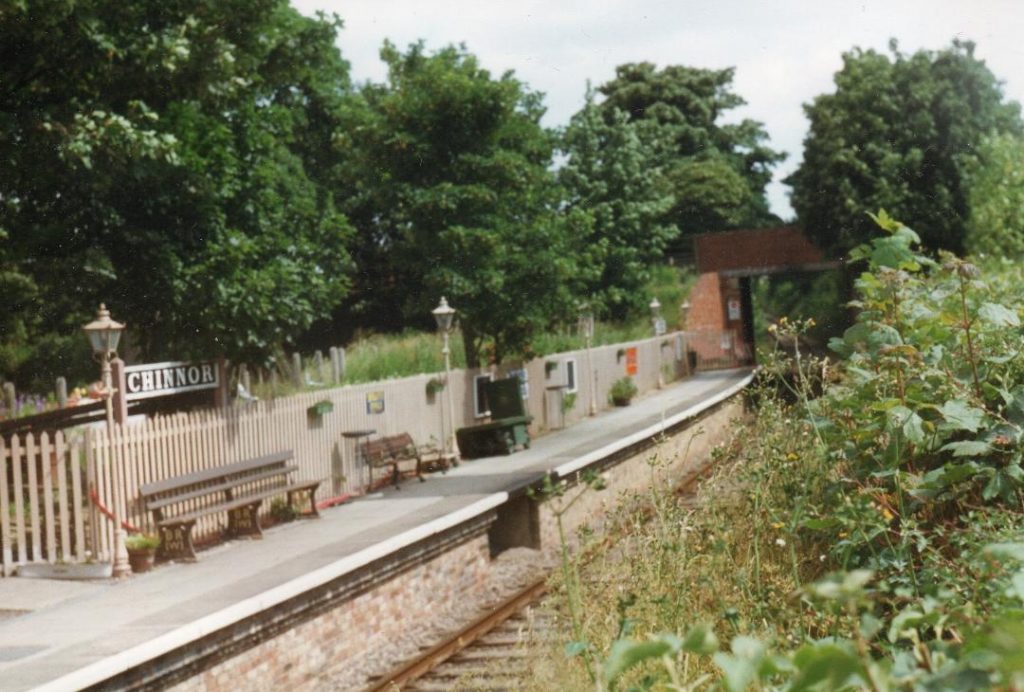
Rewatching Diesel Train Ride with my two youngest daughters the day before my cycle, I was even more struck than usual by the paradisiacal scene from 7.32 to 7.56. The low-visibility man walking home alongside a railway perfectly kept, the embankments and platforms like gardens[ix], the gated goods yard and buildings, immaculate and well-maintained. The pale blue and white paintwork, the neat fencing, the level crossing and signals – all as if individually created by an endlessly patient god. Did people care more for the world, or their little part of it, then? Or did they simply have more time? Of course, they had more time, since they had less technology.[x] None of those thoughts mattered though, because suddenly the otherworldly station looked familiar, surely it couldn’t be Wetheral[xi] just to the east of Carlisle?
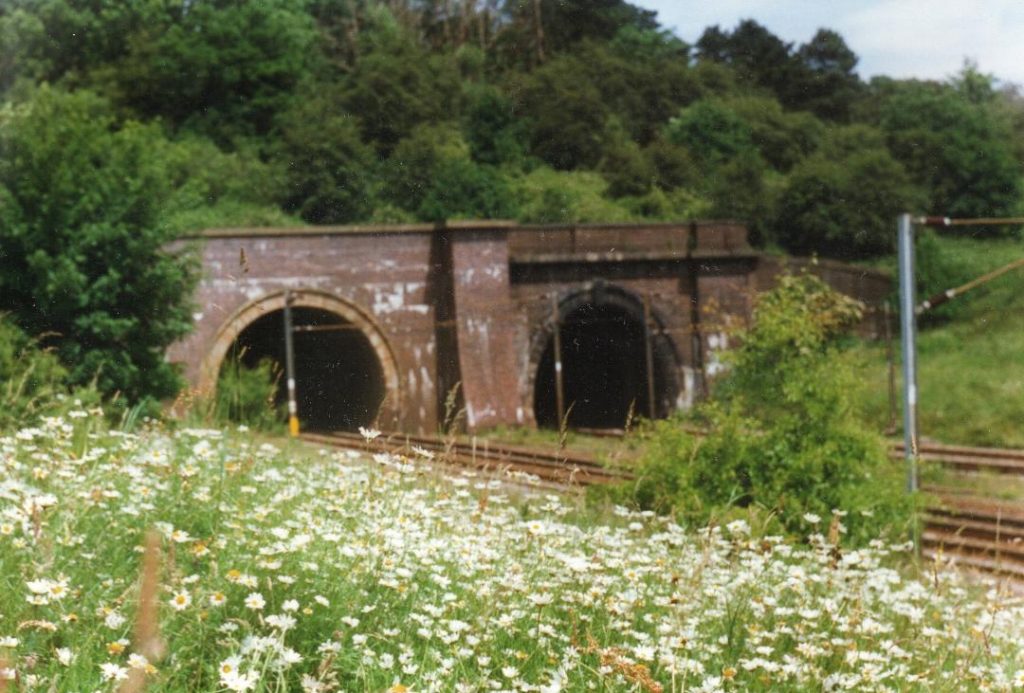
Previously I’d assumed this untraceable place was either located on one of the East Anglian lines used in previous shots or, despite the evidence of the film, had never really existed – for it was clearly more real than reality. Though I’d passed through Wetheral many times on trains and been attracted enough to return and walk the area, crossing the footpath on the north side of the viaduct over the River Eden, somehow, I had never recognised it. Looking again, sure that I couldn’t possibly be right, it was clear that while the choice of colour was different, the ornate form of the footbridge was correct. The preceding viaduct, giving no sense of its height above the river and foreshortened by the camera, was also accurate, as was the curving track. Where it all fell apart was that none of the beauty of the approach to the viaduct remains. We stared at the screen trying to decipher the name on the signalbox. Something Gate? Still believing I must be wrong, that some unknown place must partly echo Wetheral’s layout, I found an old map which showed the settlement on the east bank of the Eden: Great Corby, followed by information about the signalbox, which almost unrecognisably, still exists[xii]: Corby Gates.
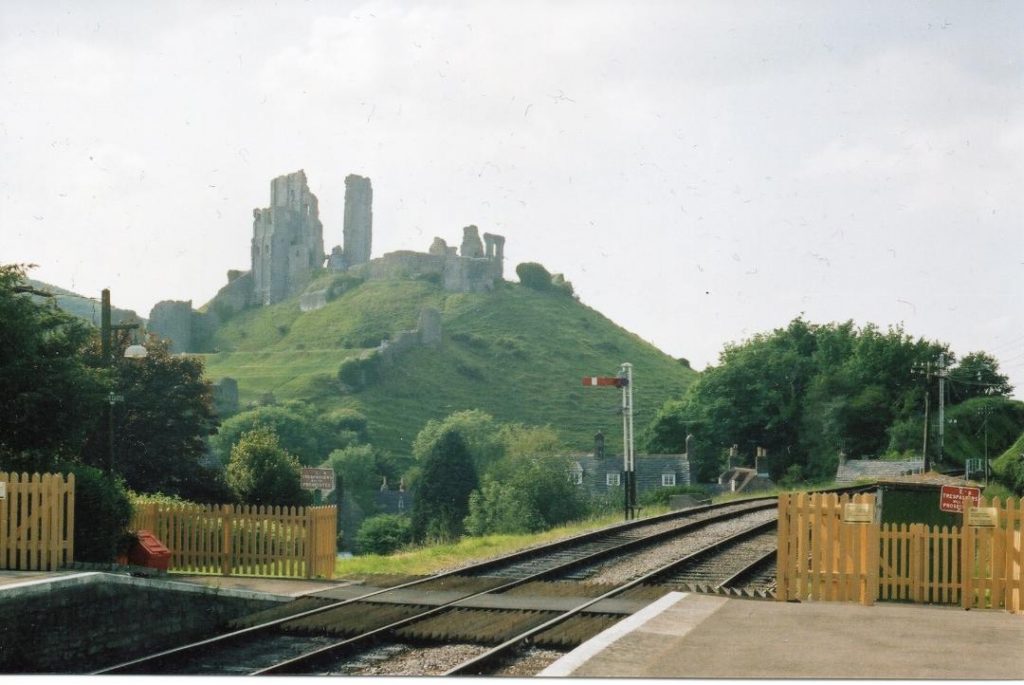
People will say that inner cities and poorer areas would have been far worse in 1959 than they are now and that even a rural place such as Wetheral could only look like that because labour was cheap or that we were still living on Empire. There may be some truth in all these points, but where did the false economics of rationalisation get us? Without taking into account the dubiousness of the information[xiii] gathered (and later partially presented in Reshaping British Railways, (1963)[xiv]) or its heavily biased analysis, of the former employees lost due to “natural wastage”[xv] many no doubt were left to subsist on benefits or suffer failing mental health due to a loss of self-worth. While the railway may now appear to be turning a profit, society gets gradually sicker. This is what always happens under Capitalism.
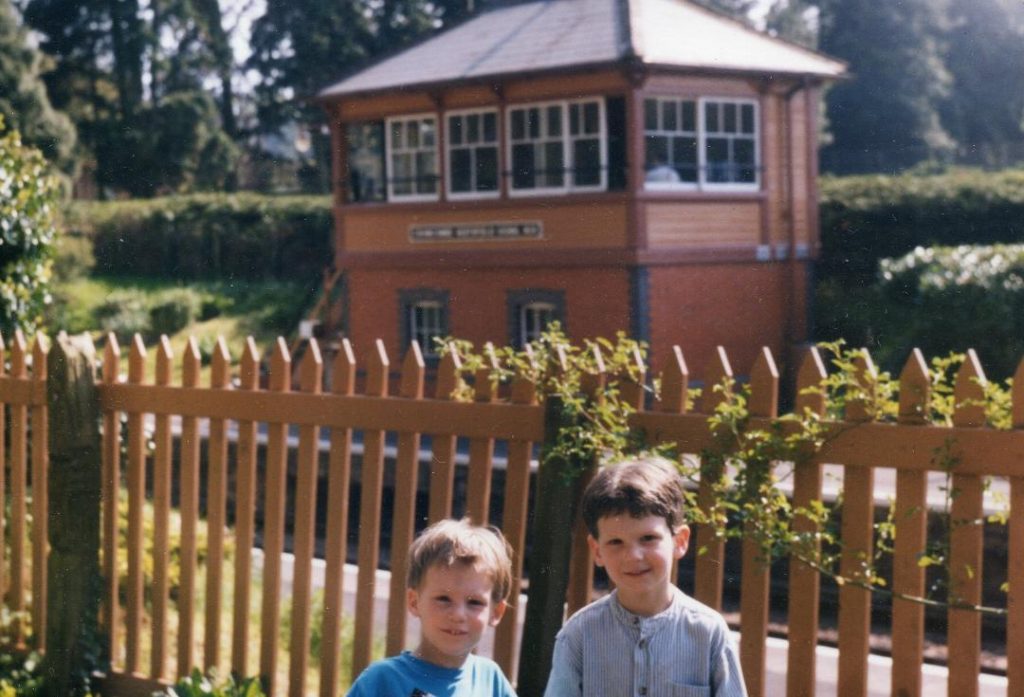
Going back to my revelation concerning the identity of Wetheral, while on my cycle I began to wonder if it would have been better for the actual location of that magical station to remain a mystery. Gratifying though it can be to discover something you thought lost, in the case of Wetheral, comparing then to now, is to realise the sacrilege of the all the destruction since.[xvi] In reality, not many of the lines that disappeared were unprofitable in a wider sense, but the time had turned against them and the Government was busy encouraging road transport with its selfish but undoubted convenience and its occasional efficiencies. Effectively roads and cars were subsidised just as flight has been to an absurd degree in recent decades[xvii].
Finding the balance between selfishness and liberty is awkward[xviii]. Both climate change and the current pandemic have partly been caused by the excessive and widespread desire for ‘freedom’. One of the few unselfish freedoms is purely internal, the time travel available inside your head . . . but not many are adapted to such an idea, tending to view it as insularity rather than freedom.
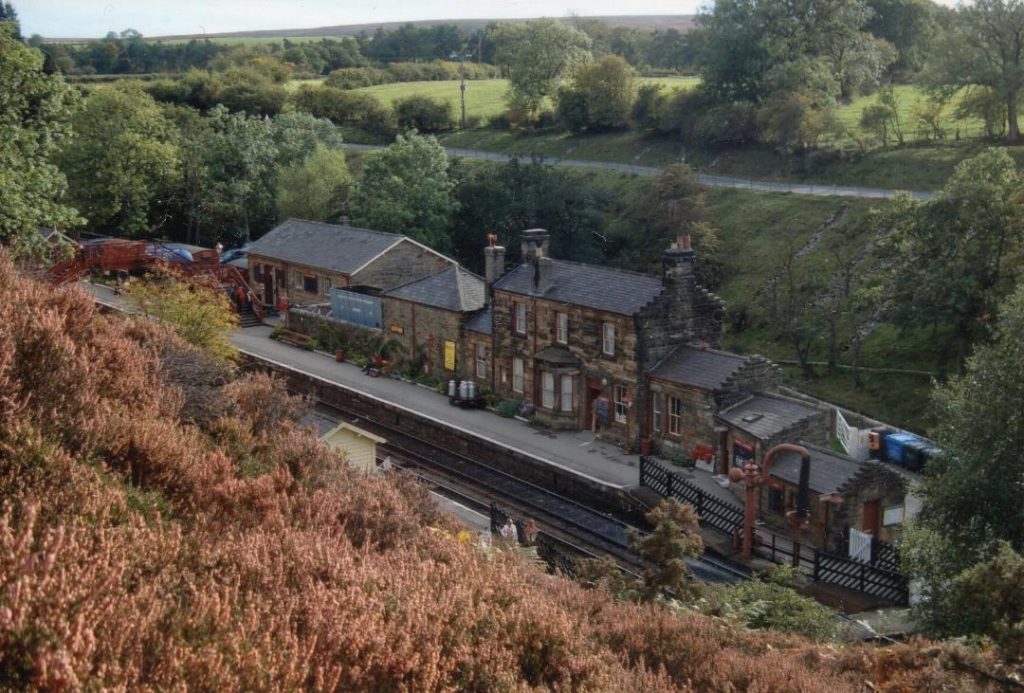
Off the heights and halfway home, a modern dual carriageway runs parallel to the superseded route. Here, seen through the broken border of hedge and tree, the traffic appeared almost as bad as usual, a preponderance of vans and lorries not entirely excluding even some open-top cars whizzing about in the June-pretending sun, no doubt returning from something essential, their occupants pondering the balance between obedience and cavalier respect.
On a metaphysical level would it be better to believe that the Wetheral of 1959 still survived in some parallel heightened world? In many ways our treasury of preserved railways[xix] – under threat in the current climate of semi-hysteria – brings back almost everything that was banished in the 60s. Of course, in a way, preserved railways aren’t real: they serve no purpose other than to please rail fans, nostalgics and tourists. They are purely for leisure, which was always the bribe and the ideal behind automation and technology. But despite their hierarchies and rivalries[xx], here the retired and the devoted work hard yet freely towards a goal beyond materialism. They care about their part of the world again. Such volunteers have long served as a prime example of love among the ruins.
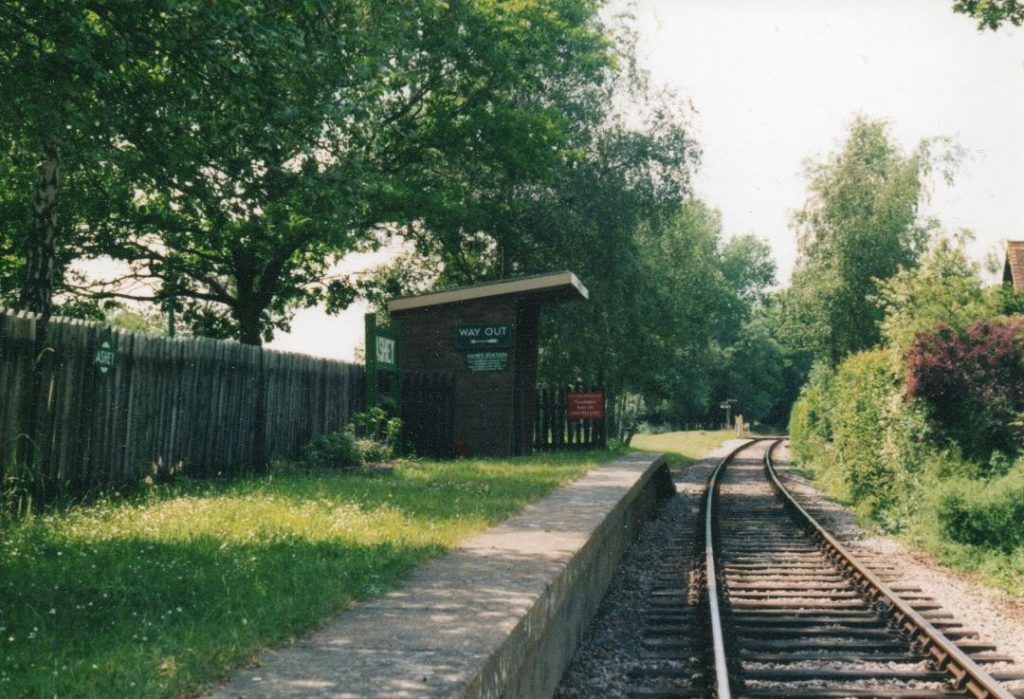
© Lawrence Freiesleben,
Cumbria, March 27th 2020
Railway photos locations from top:
Grosmont, North Yorkshire, Autumn 2011
Quainton Road, Bucks, August 2004
Chinnor, Oxfordshire, June 1998
Hadley Wood, North London, June 1998
Corfe Castle, Dorset, June 2005
Crowcombe Heathfield, Somerset, May 1999
Goathland, Autumn 2011
Ashey, Isle of Wight, June 2004
NOTES
[i] https://en.wikipedia.org/wiki/The_Archers the long-running radio series that I haven’t chanced upon for over twenty years – so it might have changed?
[ii] https://en.wikipedia.org/wiki/Mrs._Miniver_(character) I only know the 1942 Hollywood film, but I imagine the character was an upmarket version of The Archers?
[iii] From my son, a philosophy teacher on the borders of east London: “The childminding has been on a rota, so I’ve only had to go in for a few half-days. Works out OK because I can combine it with nearby Morrisons – the best place to get stuff nearby (they even had EGGS last week!) and quite a pleasant experience because although you have to queue outside (which weather permitting is fine because I just read Plato as I shuffle along!) the numbers inside are strictly limited. At Tesco, queuing indoors for the checkouts is less conducive – though Plato never seems to object.”
[iv] My youngest daughter was cross that it was windy this morning: “Thought it was summer!” she protested sulkily. “No, it just feels like it sometimes. It’s to do with climate change,” her 9 year old, elder sister informed her: “All the seasons are mixed up. Soon, there won’t be any.” I tried a little bit of reassurance at this point. “Does that mean it will get darker and lighter all mixed up too?” my younger daughter persisted. “No,” her sister replied, “that’s more caused by the sun. The sun’s too far away for people to mess up.”
[v] Simpson Ground Reservoir – obvious as such from the dam, but reservoir sounds less poetic.
[vi] Available through the BFI at https://shop.bfi.org.uk/dvd-blu-ray/box-sets/pre-order-railways-for-ever.html#.Xn8UeEf7QdU but also available to watch at https://www.youtube.com/watch?v=B-TkUAma8Y8)
[vii] https://en.wikipedia.org/wiki/I-Spy_(Michelin)
[viii] NOTE FOR OBSESSIVE FANS ONLY: After the stated destination of Mundesley (0.35), our ‘SPECIAL’ train cuts about all over the place. Beginning in Norfolk, possibly at Great Yarmouth, at 3.18 we pass Beccles Bank signal box, to the south, in Suffolk. The Britannia pacific that passes at 3.27 “going the wrong way” and the B.1 at 3.46, may be on the Eastern Region main line from Liverpool Street to either Ipswich or Norwich – as the water troughs (4.06) almost certainly are; but after Spooner Row, between Thetford and Norwich at 5.07, it’s impossible to say where exactly we are – until the abrupt shift in region somewhere before the railway crane at 5.53, clearly lettered London Midland Region. After a brief return to East Anglia at 6.12, at 6.49 we shift north to the Newcastle to Carlisle route. At first, I couldn’t trace the rib arch bridge that “takes you to another world” even though it turned out I’d seen it often from passing trains and even used it to span the Tyne on foot in the middle of the night in 2012. With maps and other information my son proved conclusively that it was Points Bridge, Hagg Bank, Wylam, Northumberland (https://en.wikipedia.org/wiki/Wylam_Railway_Bridge) from which the track was removed in 1972. 46 miles to the west, the train then crosses the appropriately named river Eden to pass through the paradise on earth of Wetheral. The distraction of elaborate lunch boxes disguises the cut to a tunnel emerging in Cumberland to a view of Grisedale and then Causey Pikes (8.38-52) near Keswick. Travelling the long-vanished metals from Penrith to Cockermouth, the train then backtracks to what looks like Penruddock (8.53-9.04) with Blencathra forming the skyline. 9.06-9.22 looks like the Threlkeld area (near Auden’s parents’ country cottage, (see http://internationaltimes.it/the-italian-digression-part-1/) after which Sir Edmund Hilary (“I shouldn’t think so for one minute”) snaps Bassenthwaite, before another unusual tunnel takes us heaven knows where, to terminate under a generous signal gantry.
[ix] Though perhaps gallons of pesticides were used to keep it that way? In any case, the wildness through which some of the Newcastle to Carlisle line passed, is what gives Wetheral and Crosby Gates their power of contrast – I’m sure nobody would want everywhere to be so controlled.
[x] Used strictly as a tool, technology obviously saves time, yet its distractive power (even for something as potentially worthwhile as watching Diesel Train Ride for free) effortlessly encourages the squandering of this saved time. On top of which, easily exploited for consumer control, its effects are hideously insidious within the Capitalist helter-skelter.
[xi] https://www.visitcumbria.com/car/wetheral/
[xii] https://www.railscot.co.uk/locations/C/Corby_Gates_Signal_Box/
[xiii] Notoriously, some lines were surveyed at dead times on a Sunday. Clearly some routes duplicated others gratuitously, but basically Dr Beeching became a stalking horse and later a scapegoat for a politically motivated and wholesale destruction of the railways.
[xiv] https://www.youtube.com/watch?v=JvdOjNU_srg Poor Dr Beeching does his best and the film appears unarguable in just the way Government sponsored films must. Note the line at 5.46 “Now this whole vast network, once so vital, is vital no longer.” . . . Except that today, we could do with most of it back again.
Interesting to compare the vivid summer colour of 1959’s Diesel Train Ride, with the grim black & white winter of Reshaping British Railways. The carrot and the stick?
[xv] Dr Beeching’s “natural wastage” phrase occurs at about 10.07 during Reshaping British Railways. Notice how coy he is just before this point regarding the number of sacked men: “Last year we brought down the total staff by about 26,000, and the number of men who actually had to be discharged to do this, was a very much smaller number.”
[xvi] From page 92 of The Bow: “All around the destruction of past caring, signal post smashed on an embankment of rubbish. Ladder going nowhere.”
[xvii] Just one example from 2019: https://www.airportwatch.org.uk/2019/08/interesting-breakdown-of-the-hidden-subsidies-of-airlines-in-europe-that-allow-flights-to-be-so-cheap/
[xviii] I’d like to think that people aren’t so spineless to tolerate, nor the administrators so authoritarian to impose for long, a ‘lockdown’ frequently half-baked in its details. At the same time, it’s obvious that many of the restrictions needed to slow climate change – an eminently more justified cause – won’t be so very different.
[xix] Far more than any other country in the world.
From https://www.bbc.co.uk/news/uk-52097797 : “A Sheffield woman went out to buy food and cleaning products for her family after spending more than a week in isolation. While in the shop she asked for some compost as she has her own vegetable patch but was told by a staff member, they couldn’t sell it as it was “non-essential”. “I said, ‘Why can I buy a chair for the garden and a gnome for my garden but compost is non-essential?’ They couldn’t give me an answer. It’s ridiculous.”
A perfect illustration of the half-baked nature of lockdown – but equally perhaps, an inadvertent illustration of ‘Britishness’, of muddling through and of a reluctance towards authoritarianism?
[xx] Which as a volunteer on the West Somerset Railway from 1996-2007 and the North York Moors Railway from 2010-2014, I was always well aware of – as of the ecological question-mark over their coal-burning and diesel fuelled monsters of grandeur.

To my NOTE above, (about the Sheffield woman able to buy a garden gnome, but not “non-essential” compost, perfectly illustrating “the half-baked nature of lockdown”), I optimistically or naively added, that this situation could equally be taken to illustrate the ‘Britishness’ of muddling through and of a reluctance towards authoritarianism.
Carl Spender in Freedom News however, highlights a quite different and more disturbing perspective: See https://freedomnews.org.uk/legal-people-are-being-criminalised-for-coronavirus-offences-that-dont-exist/
His article contains the following paragraphs: “But we cannot let the necessity of strong social distancing measures blind us to what is a flagrant abuse of power. Cops and magistrates make stuff up all the time, but for them to coercively enforce government preference, rather than the law of the land, in such an open and extensive manner is a very concerning development – and one we ignore at our peril.”
“More than anything, people need to know that they should not be meekly accepting fines or pleading guilty to coronavirus related offences. The cops and magistrates are quite literally making shit up and in all likelihood many of these cases will (eventually) be thrown out or overturned on appeal. However, neither of these options will be available to people if they enter a guilty plea. The moral is simple: refuse to accept guilt; make the state prove its case.”
Comment by Lawrence Freiesleben on 4 April, 2020 at 2:22 pmHere’s a petition that needs signing with ALL URGENCY before the “whiff of jackboots” gets any stronger
http://chng.it/dwFGSBjRbz
Comment by Lawrence Freiesleben on 4 April, 2020 at 6:00 pm